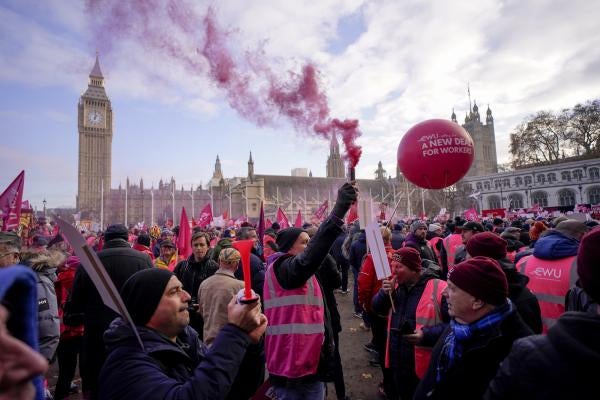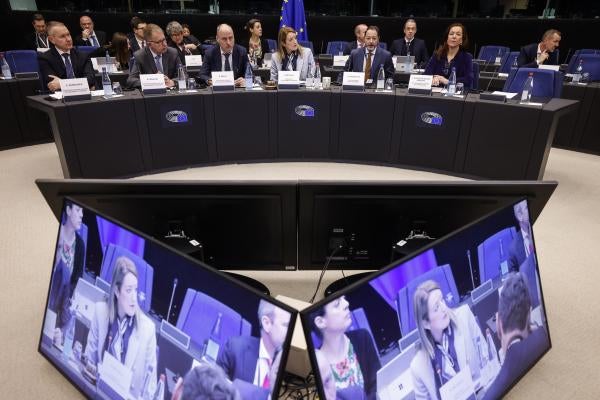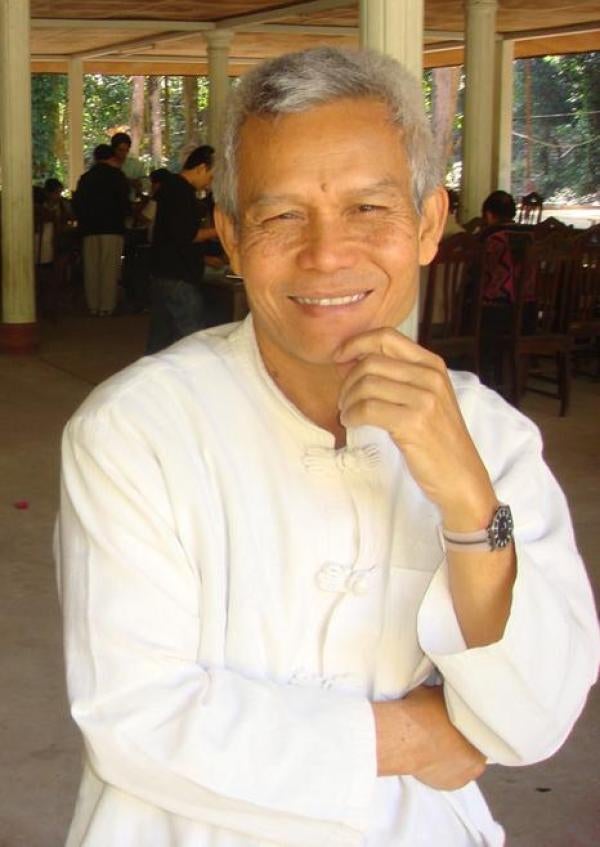Amid a deep economic crisis, widespread discontent, and unprecedented strikes by critical workers, the UK government is reaching for authoritarian tools.
Britain is in the grip of the worst cost-of-living crisis in decades. Inflation is at a 41-year high. Food and energy bills have skyrocketed in the last few months. Millions are struggling to cope.
Today, tens of thousands of nurses from the National Health Service are on strike, for the first time in their union’s 106-year history. After years of stagnant wages and a growing pay squeeze, they say they are left with little choice.
Rather than address the nurses’ complaints, UK Prime Minister Rishi Sunak is instead promising “tough” new laws to limit strikes.
But workers’ right to strike, a cornerstone of any functioning democracy, is not the only fundamental right targeted by this government. There’s also a host of legislation aimed at criminalizing people’s right to protest.
The new Public Order Bill currently going through Parliament is aimed at turning protesters into criminals. It reintroduces several anti-protest measures, and, like a new law in Australia we’ve discussed previously, it seems targeted at climate protesters specifically.
If it becomes law, merely attending a protest could result in punishment. For exercising your right to peacefully protest, you could be served with a “serious disruption prevention order.” That would limit who you could associate with, what you could do online, and where you could go.
The bar for punishment is both abusively low and absurdly vague. You could be served with an order if, twice within the past five years, you “carried out activities related to a protest that resulted in, or were likely to result in, serious disruption to two or more individuals, or to an organization.”
But neither “serious disruption” nor “activities related to a protest” are defined. And breaching the order can carry a 51-week prison term.
Like the government’s threats to the right to strike, this bill’s assault on the right to protest is chilling. Neither has any place in a democracy.







